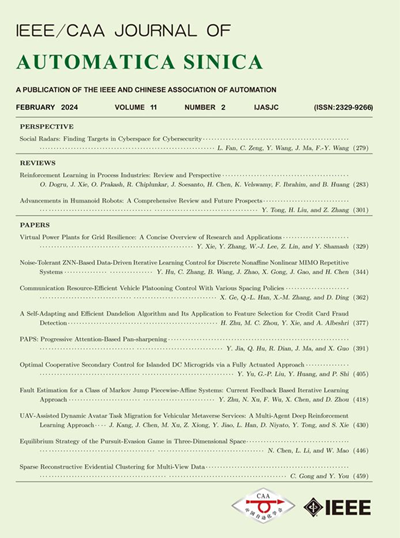海洋环境中船舶的激光雷达点云数据集
IF 15.3
1区 计算机科学
Q1 AUTOMATION & CONTROL SYSTEMS
引用次数: 0
摘要
本文首次介绍了由采集数据和模拟数据组成的船舶激光雷达点云数据集,以解决海洋应用中激光雷达数据稀缺的问题。收集到的数据是使用专门的海事激光雷达传感器在内河航道和广阔的海洋环境中获取的。模拟数据的生成方法是将一艘船置于激光雷达坐标系中,然后使用重新开发的 Blensor 对其进行扫描,该 Blensor 可模拟配备各种激光束的激光雷达传感器的运行。此外,我们还渲染了雾天和雨天的点云。为了描述真实的航运环境,我们通过迭代时间序列中每个点的波浪高程来模拟动态尾波。最后,通过输入我们的数据集,将服务于小型物体的网络迁移到船舶应用中。在物体检测实验中描述了模拟数据的积极作用,在单个物体跟踪实验中验证了作为噪声的尾波的负面影响。数据集可在 https://github.com/zqy411470859/ship_dataset 上获取。本文章由计算机程序翻译,如有差异,请以英文原文为准。
A LiDAR Point Clouds Dataset of Ships in a Maritime Environment
For the first time, this article introduces a LiDAR Point Clouds Dataset of Ships composed of both collected and simulated data to address the scarcity of LiDAR data in maritime applications. The collected data are acquired using specialized maritime LiDAR sensors in both inland waterways and wide-open ocean environments. The simulated data is generated by placing a ship in the LiDAR coordinate system and scanning it with a redeveloped Blensor that emulates the operation of a LiDAR sensor equipped with various laser beams. Furthermore, we also render point clouds for foggy and rainy weather conditions. To describe a realistic shipping environment, a dynamic tail wave is modeled by iterating the wave elevation of each point in a time series. Finally, networks serving small objects are migrated to ship applications by feeding our dataset. The positive effect of simulated data is described in object detection experiments, and the negative impact of tail waves as noise is verified in single-object tracking experiments. The Dataset is available at https://github.com/zqy411470859/ship_dataset.
求助全文
通过发布文献求助,成功后即可免费获取论文全文。
去求助
来源期刊

Ieee-Caa Journal of Automatica Sinica
Engineering-Control and Systems Engineering
CiteScore
23.50
自引率
11.00%
发文量
880
期刊介绍:
The IEEE/CAA Journal of Automatica Sinica is a reputable journal that publishes high-quality papers in English on original theoretical/experimental research and development in the field of automation. The journal covers a wide range of topics including automatic control, artificial intelligence and intelligent control, systems theory and engineering, pattern recognition and intelligent systems, automation engineering and applications, information processing and information systems, network-based automation, robotics, sensing and measurement, and navigation, guidance, and control.
Additionally, the journal is abstracted/indexed in several prominent databases including SCIE (Science Citation Index Expanded), EI (Engineering Index), Inspec, Scopus, SCImago, DBLP, CNKI (China National Knowledge Infrastructure), CSCD (Chinese Science Citation Database), and IEEE Xplore.
 求助内容:
求助内容: 应助结果提醒方式:
应助结果提醒方式:


